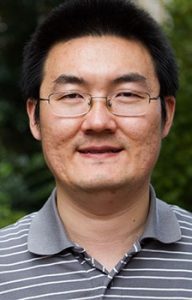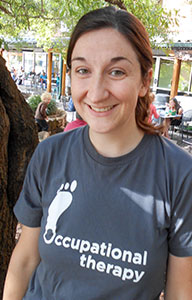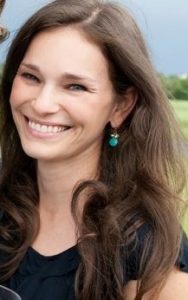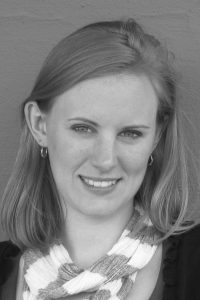In early 2010, The Graduate School received a private gift from the estate of Thomas Ferdinand – and with that gift, an opportunity to respond to a critical graduate student need. The Graduate School committed those funds toward establishing a summer fellowship program for students in academic fields where summer support is limited. In the five years since 2010, 133 doctoral students have received these fellowships.
The Summer Research Fellowship program continues thanks to the generosity of graduate alumni and friends who understand the importance of enabling graduate students to focus exclusively on their own research for a few months. The Graduate School matches donor gifts of $2,000 to create a full living stipend of $4,000 for the summer. Students are freed from teaching and other work responsibilities so they can progress on their research and move more quickly toward degree completion.
In this issue of the Carolina Chronicle, we talk with a few fellowship recipients and learn just how meaningful this support was to their dissertation progress. For our winter 2015 issue, we will highlight a few of the individuals who have made it possible for students to access the resources they need.
Hexuan Liu
Doctoral Student in Sociology
Recipient of the 2014 Charles V. Stewart Summer Research Fellowship

Hexuan Liu has an ambitious goal: to understand the causes of obesity in the United States.
Liu spent the past summer conducting research on obesity through an innovative approach that integrates genetics and social sciences in the analysis of health behaviors.
He is particularly interested in how social and environmental factors interact with genetics, and how all of them impact health behaviors.
“If we want to solve this problem, we need to understand what are the important factors that lead to obesity,” he said. “I think this research will help people improve this understanding.”
To conduct his research, Liu had to study large sets of data that typically include millions of genetic variables. Managing and analyzing such large-scale data sets requires special knowledge of specific tools.
Through the financial support offered by his Charles V. Stewart Summer Research Fellowship, Liu was able to concentrate on his project and gain the necessary skills to conduct this type of research. “This fellowship helped me in several ways. Most importantly, it allowed me to focus on this study.”
As Liu said, obesity is a “hot topic” today in the United States, and his research promises to offer a glimpse into its causes. By integrating two disciplines—sociology and genetics—Liu’s work will offer multiple perspectives regarding this condition.
His research has already revealed fascinating results: Genetic effects on obesity in late adulthood are greater for people who have experienced persistently low socioeconomic status or downward mobility, compared to those who have persistently experienced high socioeconomic status or upward mobility.
So far Liu’s research has focused on obesity among the Caucasian population in the United States. However, he plans to expand it to other health behaviors such as smoking or drinking, as well as other populations including African Americans.
Anne Kirby
Doctoral Student in Occupational Science
Recipient of the 2014 Ying-Chiong Hu Summer Research Fellowship

Anne Kirby was 15 years old when she had her first interaction with a child with autism. Her mother, a special education teacher, encouraged her to work at a camp for children with special needs, and it was there that Kirby developed a lifelong interest in helping people on the autism spectrum.
“I found that the kids with autism that I first worked with seemed really distant at first,” Kirby said. “But when you worked really closely with them and got to know them—I just felt like I could have a special connection with them. I felt like there was a lot going on inside that you couldn’t see when you first met them or tried to interact with them.”
Kirby’s research focuses on how factors during the childhood and adolescent years influence outcomes for adults with autism.
“What we know about adults with autism is that they don’t end up doing well in terms of meaningful participation in life,” Kirby said. Kirby noted that they often have trouble moving away from their parents, struggle to find and keep jobs, and have limited social engagement.
“A lot of the research has pointed out that there is a problem,” Kirby said. But we don’t know a lot about what’s contributing to that. And so that’s what my dissertation is about.”
Kirby’s Ying-Chiong Hu Summer Research Fellowship allowed her to devote her summer entirely to her research. She steeped herself in the autism literature to look for common predictors of adult outcomes like IQ, speech level and socioeconomic factors. She also interviewed seven teenagers with autism and their families to look for common factors that influence families’ expectations for their children. Kirby hopes her research on parental expectations will provide guidance for families.
“If ways that families are thinking about the future are in some way influencing their child’s outcome, those are things that can be shifted rather than an IQ, which is not so changeable,” Kirby said.
Kirby plans to graduate in May 2015. She’s looking into postdoctoral fellowship opportunities, as well as faculty positions. Either way, she is committed to continuing the important research she has begun.
Charlotte Agger
Doctoral Student in Education
Recipient of the 2013 Thelma Zaytoun Summer Research Fellowship

From a very young age, Charlotte Agger became fascinated by the notion of youth development. “Watching my siblings really sparked my interest in child development, especially within the school context,” said Agger, who is the oldest of five children.
Agger researches how contextual and psychological influences shape the schooling experience of adolescents. Her research has focused on diverse populations, like minority and rural youth, who have been traditionally understudied.
Agger’s love for research developed while working in numerous labs at Vanderbilt University, where she completed her undergraduate degree. As a graduate student at UNC-Chapel Hill, she has worked with top professors in several fields to address current education issues.
Judith Meece, a professor in the School of Education, is one of them. Agger and Meece co-presented a presidential address about rural youth and gender at the American Psychological Association in August 2014.
Agger’s Summer Research Fellowship allowed her to really focus on her work. She studied how feminine-oriented beliefs affect literacy achievement in African-American adolescents.
“The Summer Research Fellowship was really useful and beneficial for my work because it allowed me to take the summer and work on data management. I also ran a lot of analyses with the help of colleagues at UNC and other universities,” Agger said.
The Thelma Zaytoun Summer Research Fellowship also resulted in a significant professional opportunity: Agger presented her research at the Society for Research on Adolescence conference in Austin, Texas, the following spring.
Though her work, Agger hopes to create a more thorough understanding of how gender and familial factors influence students’ education trajectory.
“Regarding my research, I am excited about isolating some of the important contextual and psychological influences on the motivation and achievement patterns of diverse youth. Through this work, I hope to collect information that will help students, families and schools best support the educational aspirations of adolescents.” she said.
Agger is currently working on her dissertation and teaching in the Master of Arts in Teaching program within UNC-Chapel Hill’s School of Education.
Mikaëla Adams
Doctoral Alumna in History
Recipient of the 2011 Peggy Harpold Summer Research Fellowship

Mikaëla Adams’ classes at the University of Mississippi are always full. She’s the first professor in the University of Mississippi history department to offer courses on American Indian history, and she’s had great student response.
“I was really excited,” Adams said. “There is an Indian tribe in Mississippi—the Choctaw. So I think it’s really important that the premier university in Mississippi would have that course offering to acknowledge the diversity in the state and the nation as a whole.”
Adams earned her doctorate in 2012 and landed a job later that year as assistant professor of history at the University of Mississippi.
Adams’s dissertation focused on tribal citizenship in the Southeastern United States during the late 19th and early 20th centuries.
“I’m interested in questions of national belonging,” Adams said. “Who is included, and who is excluded?”
Adams came to UNC-Chapel Hill because of its strong scholarship on American Indian history. She said she believes her interest in citizenship stems from the fact that she spent much of her childhood as an American citizen growing up in Europe.
“I was living in a place where I wasn’t a citizen,” Adams said. In addition, many of Adams’ friends in graduate school were international students.
Adams’ dissertation research took her on trips across the Southeast digging through state and regional archives in Georgia, South Carolina and Virginia. Adams said her Peggy Harpold Summer Research Fellowship made that research possible.
“My summer trips to the archives were quite extensive,” Adams said. “I used that research material to write two conference papers that I presented in fall 2011.”
When Adams isn’t teaching, she’s working on turning her dissertation into a book. She has even discovered a new research interest: how American Indian tribes have responded to epidemics, specifically the flu of 1918. She plans to pursue this interest while continuing to teach at Mississippi.
♦ Written by Andrea Patiño Contreras and Jess Clark, master’s degree candidates in the UNC-Chapel Hill School of Journalism and Mass Communication.
